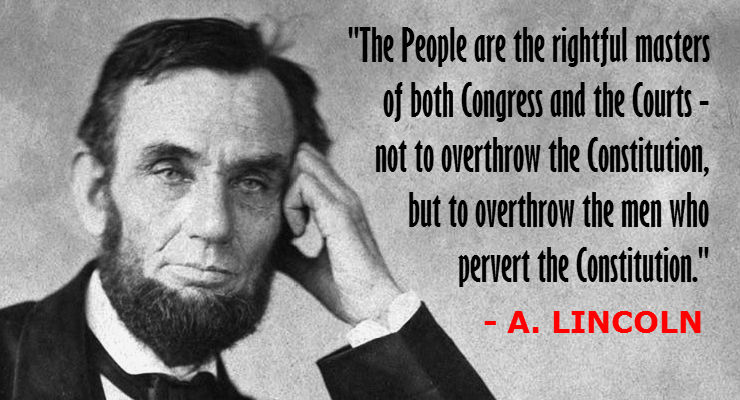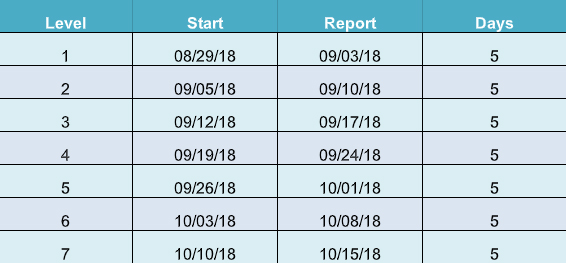
This is part four of a six article series. All six articles have now been published:
- A New Proposal For A Practical Democracy Built On Public Agreement
- The Flaws In Our Existing Voting Machinery
- Creating A More Democratic Process By Correcting Existing Flaws
- The Mechanics Behind A New Election System
- A New Way To Encourage Political Participation By Design
- Practical Democracy: The Next Step In The Evolution Of Democracy
In my last article, we looked at problems with the existing political system and a few of the considerations we must accommodate to build a different system. Now, we’ll think about the actual mechanics of such a process.
How The Process Works
Step 1
Divide the entire electorate into groups of three randomly chosen people.
- The random grouping mechanism must insure that no two people are assigned to a triad if they served together in a triad in any of the five most recent elections. At the initial level, it must ensure that no two people are assigned to a triad if they are members of the same family.
- At any time up to one week before the process begins, people may declare themselves members of any interest group, faction, party, or enclave, and may create a new one, simply by declaring membership in it. People that do not declare group membership are automatically assigned to a set of people with no affiliation. Triads will be created from members of the same interest group, as long as more than two members of the group exist. When a group has less than three members, the group’s remaining candidates are merged with the largest set extant.
- For the convenience of the electorate, triad assignments shall be based on geographic proximity to the maximum extent practical, subject to the foregoing conditions.
Step 2
Assign a date and time by which each triad must agree that one of the three members is the best advocate of the group’s interests.
- Selections will be made by consensus.
- If a triad is unable to agree on a representative in the specified time, all three participants shall be deemed disinclined to participate in the process.
Step 3
Divide the participants so selected into new triads.
Step 4
Repeat from step 2 until a target number of selections is reached.
For convenience, we refer to each iteration as a ‘Level’, such that Level 1 is the initial grouping of the entire electorate, Level 2 is the grouping of the selections made at Level 1, and so forth. The entire electorate participates at level 1 giving everyone an equal opportunity to advance to succeeding levels.
Elective and Appointive Offices
The final phase of the Practical Democracy (PD) process, electing candidates to specific public offices, is omitted from this outline because that task is implementation-dependent. Whatever method is used, it is recommended that participants who reach the highest levels but do not achieve public office become a pool of validated candidates from which appointive offices must be filled.
Management
The local government conducts the process. It assigns the participants of each triad and supplies the groups with the text of pending ordinances and a synopsis of the budget appropriate to the group. In addition, on request, it makes the full budget available and supplies the text of any existing ordinances. This enables a careful examination of public issues and encourages a thorough discussion of matters of public concern.
Face-to-face meetings in three-person groups eliminate any possibility of voting machine fraud. Significantly, they also allow participants to observe the non-verbal clues humans emit during discourse and will tend to favor moderate attitudes over extremism. As Louis Brandeis said, “We are not won by arguments that we can analyze, but by tone and temper; by the manner, which is the man himself.”
The dissimulation and obfuscation that are so effective in campaign-based politics will not work in a group of three people, each of whom has a vital interest in reaching the same goal as the miscreant. Thus, the advancement of participants will depend on their perceived qualities and demeanor as well as the probity with which they fulfill their public obligations.
PD is a distillation process, biased in favor of the most upright and capable of our citizens. It cannot guarantee that unprincipled individuals will never be selected – such a goal would be unrealistic – but it does insure that they are the exception rather than the rule. More than that, they achieve selection alone, not as part of an organized faction. Once elected, acts they seek to inspire must attract the support of others over whom they have no partisan control.
Harnessing the Pursuit of Self-Interest
The initial phase of the PD process is dominated by participants with little interest in advancing to higher levels. They do not seek public office; they simply wish to pursue their private lives in peace. Thus, the most powerful human dynamic during the first phase (i.e., Level 1 and for some levels thereafter) is a desire by the majority of the participants to select someone who will represent them. The person so selected is more apt to be someone who is willing to take on the responsibility of going to the next level than someone who actively seeks elevation to the next level, but those who do actively seek elevation are not inhibited from doing so.
As the levels increase, the proportion of disinterested parties diminishes and we enter a second phase. Here, participants that advance are marked, more and more, by an inclination to seek further advancement. Thus, the powerful influence of self-interest is integrated into the process.
The pursuit of self-interest is a powerful force. Allowed free rein, it can produce an anti-social menace. However, when it is an advantage for an individual to be recognized as a person of principle, their natural tendency to pursue their own interest will guide them away from improper acts. The PD process gives candidates a career-controlling incentive to maintain their integrity. Their own self-interest provides the motivation.
Those who actively seek selection must persuade their triad that they are the best qualified to represent the other two. While that is easy at the lower levels, it becomes more difficult as the process moves forward and participants are matched with peers who also seek advancement. The competitors will seek out any hint of impropriety and will not overlook unsuitable behavior. Thus, Practical Democracy harnesses the pursuit of self-interest by making integrity an absolute requirement in candidates for public office.
Bi-Directionality
The process is inherently bi-directional. Because each advancing participant and elected official sits atop a pyramid of known electors, questions on specific issues can easily be transmitted directly to and from the electors for the guidance or instruction of the official. This capability offers those who implement the process a broad scope, ranging from simple polling of constituents to referenda on selected issues and recall of an elected representative.
Simplified Illustration
This table illustrates the process for a community of 25,000 voters. For simplicity, it omits interest group considerations and assumes each triad selects a candidate. The process is shown through 7 levels. Those who implement the process will determine the number of levels necessary for their specific application.

- If the number of candidates does not divide equally into triads, any candidates remaining are overflow. Level 1 is a special case. When there is overflow at Level 1, the extra person(s) automatically become candidates at Level 2. Thereafter, when there is overflow at any level, the number of people needed to create a full triad are selected at random from the people who were not selected at the previous level.
- To avoid patronage, appointive offices, including cabinet positions, must be filled using candidates that reached the final levels but were not selected to fill elective offices.
Time Lapse Example
To give a very rough idea of the time lapse required for such an election, we will hypothesize triad lives of 5 days for each level. To illustrate, we will start triad lives on a Wednesday and have them report their selection on a Monday. In a 7-level election (like the one shown above), the process would complete in 49 days:

Cost And Time Consumption
The cost of conducting an election by this method is free to the participants, except for the value of their time, and minimal to the government. The length of time taken to complete an election is much shorter than the time required by campaign-based partisan systems. Even in California, with a voting-eligible population of about 22,000,000, the process would complete in about 12 levels, 145 calendar days.
From the perspective of those not motivated to seek public office, it is worth noting that, as each level completes, two-thirds of the participants can resume their daily lives without further electoral obligation. At the same time, they retain the ability to guide or instruct their representatives to the extent and in the manner provided by those who implement the process. (See “Bi-Directionality”, above)
We’ve looked at the background for a different way of selecting our representatives in government and the method we’ll use to make the selections. In my next article, we’ll think our way through how a possible implementation would work.
Leave a Reply